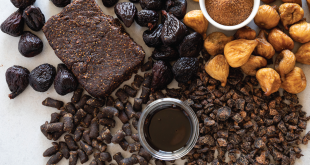Recently, the Millennial cohort (23% of the Canadian population, ages 18-34 years) has faced exhaustive observation and daunting scrutiny that typifies large up-and-coming generations. Given the current and future spending power of this generation, this is not surprising. In 2014, Statistics Canada reported that Millennials accounted for $255 billion in annual spending.
However, as the Millennial generation matures and fragments, earlier assumptions about this group may have been too broad, and increasingly off-target.
It seems that we may need to re-evaluate how we define the Millennial cohort, particularly as these young Canadians begin the nesting phase of their lives, with many starting their own families.
As with most generations, cultural, social and economic forces have impacted and shaped the Millennial family unit and produced a new female head of household, the YEMMie. The YEMMie is a young, educated Millennial Mom, whose average age is 29 years old, has immense spending power and is way beyond technologically savvy.

From pre-school to post graduate studies, this generation of new Moms has, for the most part, been raised in a highly structured environment, with many attending educational institutions for more than a quarter of a century. The resulting impact of this upbringing on YEMMies is their active engagement with online information, consultation and feedback to ensure that they are making right decisions for their families.
It is critically important for businesses to develop a deep understanding of YEMMies in order to authentically connect and engage this growing and powerful demographic, especially if they want to successfully support this cohort in the future.
YEMMies represent 43% of females in the Millennial cohort (approximately 1.7 million Canadians)
Though Millennial females are waiting longer than females in previous generations to start families, almost three-quarters (74%) of Millennials value parenthood over marriage and report that being a parent is not only a priority but a top life aspiration.
YEMMies are also contemplating larger families with one in three YEMMies reporting that they are planning for a family of three or more children.
Many of the traits that once defined Millennials were magnified through the lens of youth. Maturing Millennials are committed to parenthood as one of their most important lifetime aspirations. Consider that the YEMMie population is projected to swell to a whopping four million Canadians over the next 10 years and, given attitudes around family size, this sets the stage for a Baby Boomlet.
Blurring roles in Millennial families see more Dads getting into the act
Like all mothers, YEMMies are balancing the roles and responsibilities of parenthood and careers. To conquer domestic chores, YEMMies and their partners are more evenly dividing the day-to-day at home duties. A notably large proportion (42%) of males in Millennial families report being involved in daily meal preparation activities, which is almost twice the proportion of males ‘helping out’ in older 65+ households.
When crafting solutions targeted to YEMMies, consider the growing involvement of Millennial Dads in household chores such as meal preparation. Be sure to include them in your messaging, being mindful that their day- to-day responsibilities go well beyond simply being in charge of barbecuing.
YEMMies want to feed their families real foods
YEMMies are a new breed of mothers who have largely grown up with product facts and ingredient detail available at their fingertips and in real-time. As such, a significant proportion (67%) of YEMMies are motivated to feed their families items made with “real” foods, believing that consumption of less-processed foods is critical to healthy eating.
YEMMies prefer foods that are all natural, with:
- no artificial flavours, colours or preservatives
- no GMOs
- no antibiotics or hormones.
YEMMies also are also more often motivated to consume foods connected to the community, for example, being locally grown or locally sourced (19%).
As YEMMies increasingly transition into parenthood, their food choices lean toward clean, healthy eating and living with a preference to remove as many “ites” and “ates” from their diets as is possible. When developing products or creating programs targeted to young families, be mindful that the head of household wants to know exactly what she is feeding her family.
YEMMies Demand Convenience
YEMMies have complex and intersecting needs and have been raised with the expectation of being able to have it all quickly.
Among YEMMies, convenient options that save both time and energy are key drivers of choice. In the pursuit of real food solutions, YEMMies are not necessarily cooking meals from scratch nor are they baking their own bread the way mothers may have decades ago. Rather, YEMMies usually spend less than 30 minutes in active meal preparation and cooking time in order to get a typical dinner on the table.
Opportunity lies in creating solutions that meet YEMMies’ intersecting needs for healthy options that make them feel good about feeding their families but that will also save them time and make their busy lives a little bit easier.
In conclusion, YEMMies are a combination of progress and tradition. Like past generations, they yearn to do things differently – and better than their parents. However, preserving the connection for their own children to their heritage and roots through the observance of family traditions is still very important to YEMMies.
Key for businesses to win over YEMMies will be the requirement to exhibit a demonstrated understanding of what matters to them as people, as parents and, importantly, as consumers.
At Ipsos, the FIVE Team released the current edition of Canada CHATS, a food and beverage trends report, in November 2015. Within this 2015 edition, we examine the burgeoning cohort of YEMMies. FIVE is a daily on-line diary tracking what individuals (aged 2+) consumed yesterday across all categories and brands, occasions and venues (including Foodservice). FIVE commenced its capture of behaviour, attitudes, situational dynamics and food preparation among 20,000 individuals annually inJanuary 2013.
 Kathy Perrotta is
Kathy Perrotta is
Vice President, Ipsos Reid – Canada Marketing East
 Canadian Food Business
Canadian Food Business




